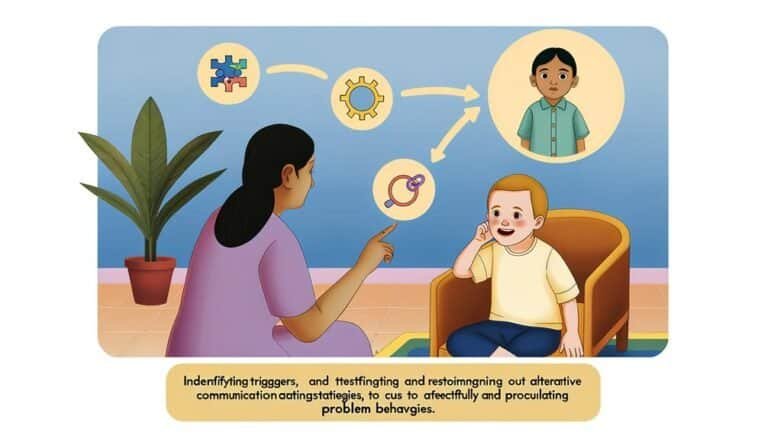Best Diversity Training Programs
When looking for the best diversity training programs, consider prioritizing those that offer thorough online courses, interactive in-person workshops, effective leadership DEI training, impactful implicit bias courses, culturally competent programs, disability awareness workshops, and microaggression prevention seminars. These programs provide a well-rounded approach to fostering inclusivity and equity in the workplace. Each training session is designed to enhance understanding, promote empathy, and cultivate a diverse and inclusive environment. Make sure to explore these various options to create a holistic training experience that caters to the diverse needs of your team.
Key Takeaways
- Interactive virtual workshops with multimedia engagement.
- Hands-on in-person workshops for immersive learning experiences.
- Leadership training for inclusive practices and diverse perspectives.
- Courses on recognizing and addressing unconscious biases.
- Cultural competency programs for effective cross-cultural communication.
Online Diversity Training Programs
If you’re seeking convenient and accessible ways to engage in diversity training, online diversity training programs offer a valuable solution. In today’s fast-paced world, remote learning has become increasingly popular, allowing individuals to participate in virtual workshops from the comfort of their own homes or offices. These virtual workshops provide a flexible and interactive learning environment, making it easier for participants to engage with the material and each other.
Through online diversity training programs, you have the opportunity to enhance your understanding of diversity and inclusion topics at your own pace. The convenience of remote learning eliminates the need for travel and allows you to access valuable resources with just a click. Additionally, virtual workshops often incorporate multimedia elements to create engaging and impactful learning experiences. You can even use an internal employee mobile app to facilitate your training program, making it easily accessible to your entire staff.
In-Person Diversity Workshops
Considering the benefits of hands-on learning experiences, engaging in in-person diversity workshops offers a unique opportunity to deepen your understanding of diversity and inclusion topics. Through interactive exercises and group discussions, you can actively participate in activities that challenge your perspectives and encourage you to see things from different angles. These workshops provide a safe space for open dialogue, allowing you to ask questions, share experiences, and learn from others in real-time.
By immersing yourself in a physical setting with facilitators and fellow participants, you can build connections and empathy that online training may not fully capture. The face-to-face interactions foster a sense of community and belonging, enhancing the overall learning experience. Additionally, the immediate feedback and non-verbal cues from others help you develop essential communication and interpersonal skills vital for exploring diverse environments effectively.
In-person diversity workshops offer a holistic approach to learning, combining theoretical knowledge with practical applications in a dynamic and engaging way. Embrace this opportunity to broaden your understanding and contribute to creating more inclusive spaces.
Leadership DEI Training
Begin a transformative journey by delving into Leadership DEI Training to enhance your understanding of diversity, equity, and inclusion principles.
DEI leadership development is essential for cultivating a workplace culture that values and leverages differences. Through Leadership DEI Training, you can foster inclusive workplace initiatives that drive innovation and collaboration among team members.
Here are some key aspects to ponder:
- Cultivating Inclusive Leadership: Learn how to lead with inclusivity by understanding the impact of your actions on diverse team members.
- Implementing Equity Practices: Explore strategies to guarantee fairness and equity in decision-making processes and opportunities for all employees.
- Promoting Diverse Perspectives: Encourage a culture where individuals from various backgrounds feel empowered to contribute their unique viewpoints.
- Building Collaborative Teams: Develop skills to effectively lead diverse teams, leveraging the strengths and talents of each member.
Embark on this learning journey to become a more effective and empathetic leader, driving positive change within your organization.
Implicit Bias Training Courses
When engaging in Implicit Bias Training Courses, you’ll gain insights into recognizing and addressing unconscious biases that may influence your decisions.
By understanding Stereotype Threat Mitigation techniques, you can create a more inclusive and supportive environment for all individuals.
Learning Inclusive Decision-Making Strategies will help you make well-informed and fair choices that benefit your team and organization.
Unconscious Bias Awareness
Understanding unconscious bias is crucial in creating a more inclusive work environment. Recognizing and addressing unconscious bias can have a substantial impact on the effectiveness of diversity training programs. Here are some key points to ponder:
- Self-Reflection: Encouraging individuals to contemplate their own biases.
- Education: Providing information on how unconscious bias influences decision-making.
- Mitigation Strategies: Introducing techniques to counteract unconscious bias in daily interactions.
- Ongoing Support: Offering continuous training and resources to sustain awareness and combat bias.
Stereotype Threat Mitigation
To foster an environment of inclusivity and reduce the impact of stereotype threat, consider participating in Implicit Bias Training Courses. These courses are designed to address implicit biases that may influence decision-making processes. Stereotype threat research indicates that individuals from marginalized groups may underperform when reminded of negative stereotypes about their identity, affecting their confidence and performance. By engaging in Implicit Bias Training, you can learn to recognize and mitigate these biases, creating a more equitable environment for all. Identity affirmation techniques are often integrated into these courses to help individuals build resilience against stereotype threat and boost their self-esteem. Embracing these strategies can lead to a more inclusive and supportive work culture.
| Implicit Bias Training Courses Table | |||
|---|---|---|---|
| Course Name | Duration | Focus Area | Benefits |
| Understanding Implicit Bias | 3 hours | Bias recognition | Increased empathy |
| Overcoming Stereotypes | 2.5 hours | Stereotype threat research | Enhanced self-awareness |
| Building Inclusive Environments | 4 hours | Identity affirmation techniques | Improved teamwork |
Inclusive Decision-Making Strategies
Consider participating in Implicit Bias Training Courses to enhance your decision-making processes and promote inclusivity within your organization. These courses help you understand and address unconscious biases that may impact your judgments. Through equity frameworks and diverse perspectives, you can develop strategies to make fair and inclusive decisions.
Here are some key points to keep in mind:
- Recognize Implicit Biases: Understand how implicit biases can influence decision-making.
- Challenge Assumptions: Question your assumptions and consider alternative viewpoints.
- Promote Diversity: Actively seek out and listen to diverse perspectives in the decision-making process.
- Implement Equity Frameworks: Utilize frameworks that promote fairness and equity for all individuals involved.
Cultural Competency Training Programs
You’re about to explore how Cultural Competency Training Programs can enhance your cross-cultural communication skills and deepen your understanding of implicit bias.
These programs offer valuable insights into maneuvering diverse environments and fostering inclusive workplaces.
Cross-Cultural Communication Skills
Understanding different cultural communication styles is essential for fostering effective interactions in diverse environments. When engaging in cross-cultural communication, consider the following:
- Active Listening: Show respect by listening attentively and acknowledging the speaker’s perspective.
- Nonverbal Cues: Be mindful of body language, gestures, and eye contact, as these vary across cultures.
- Direct vs. Indirect Communication: Understand the nuances between direct communication prevalent in some cultures and the indirect approach in others.
- Feedback Mechanisms: Establish clear feedback channels to guarantee mutual understanding and address any miscommunications promptly.
Understanding Implicit Bias
Exploring the impact of implicit bias is vital in Cultural Competency Training Programs for fostering awareness and understanding of subconscious prejudices. Recognizing bias in the workplace dynamics is essential for promoting diversity awareness and driving organizational change.
By delving into implicit bias, individuals can uncover their unconscious attitudes towards different social groups, leading to more inclusive and equitable environments. Understanding how biases influence decision-making processes and interactions allows for introspection and the development of strategies to mitigate their effects.
Through targeted training on implicit bias, participants can learn to challenge assumptions, confront stereotypes, and enhance their cultural competency skills. This heightened awareness not only benefits individuals but also contributes to creating a more harmonious and respectful workplace culture.
Disability Awareness Workshops
To further enhance your workplace’s inclusivity efforts, consider the value of hosting Disability Awareness Workshops. These workshops serve as a cornerstone for fostering a more inclusive environment by promoting disability advocacy and empowering employees to actively engage in inclusion initiatives. By participating in these workshops, individuals gain a deeper understanding of the challenges faced by people with disabilities and learn how to create a more accessible and supportive workplace.
Through Disability Awareness Workshops, employees can develop a greater sense of empathy and awareness, leading to a more inclusive company culture. These workshops provide practical strategies for accommodating diverse needs and promoting equal opportunities for all team members. By actively engaging in disability advocacy within the workplace, you can help break down barriers and create a more welcoming environment for everyone.
Incorporating Disability Awareness Workshops into your diversity training programs demonstrates a commitment to fostering a culture of respect, understanding, and support for individuals of all abilities. Embrace inclusion initiatives through these workshops to cultivate a more diverse and harmonious workplace.
Microaggression Prevention Seminars
Consider enhancing your workplace’s inclusivity by hosting Microaggression Prevention Seminars, aimed at fostering a more respectful and understanding environment for all team members. These seminars focus on raising awareness about microaggressions and equipping participants with prevention techniques to create a more inclusive and supportive workplace. By implementing these seminars, you can take proactive steps towards building a culture of respect and allyship within your organization.
- Microaggression Awareness: Educating employees on what microaggressions are and how they can manifest in the workplace.
- Prevention Techniques: Providing practical strategies for recognizing and addressing microaggressions to prevent harm and promote inclusivity.
- Creating Inclusive Environments: Cultivating a work environment where all employees feel valued, respected, and heard.
- Fostering Allyship: Encouraging individuals to become allies and support colleagues who may experience microaggressions.
Through these seminars, you can empower your team to identify and combat microaggressions, ultimately fostering a more harmonious and welcoming workplace for everyone.
Conclusion
To sum up, as you embark on your journey with online diversity training programs, in-person workshops, leadership DEI training, or any other option, remember that diversity and inclusion are ongoing processes.
Keep learning, growing, and challenging yourself to foster a more inclusive environment for everyone. Embrace diversity, celebrate differences, and aim for equity.
Together, we can construct a more inclusive and empathetic world. Keep pushing boundaries, breaking barriers, and promoting acceptance. Let’s continue this important work, hand in hand.








